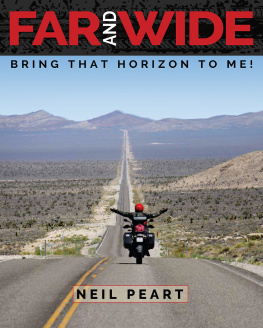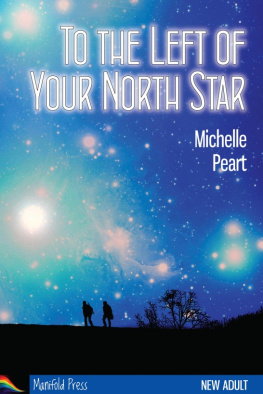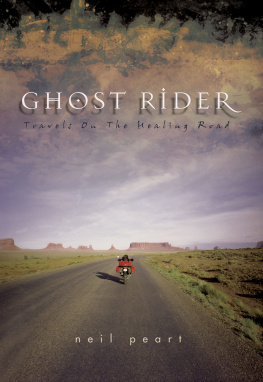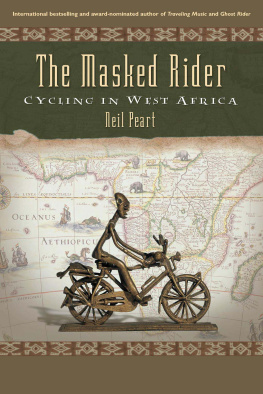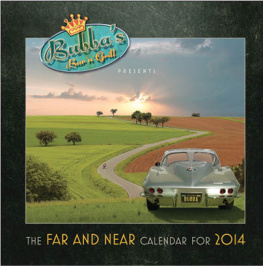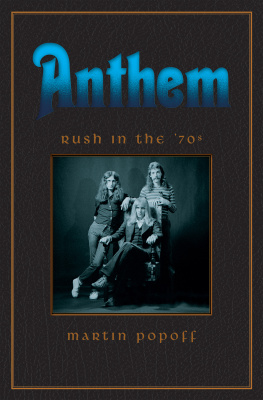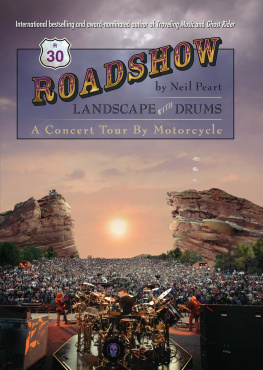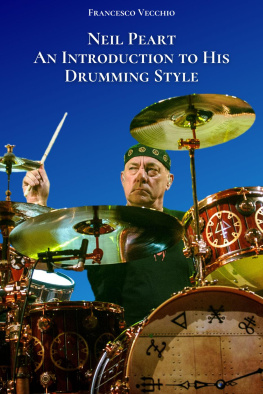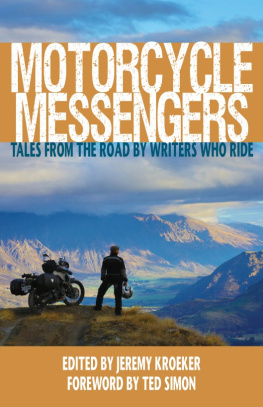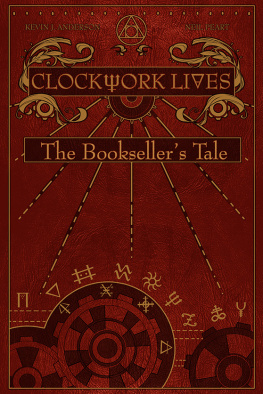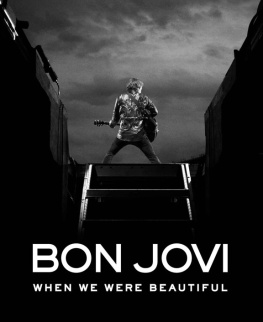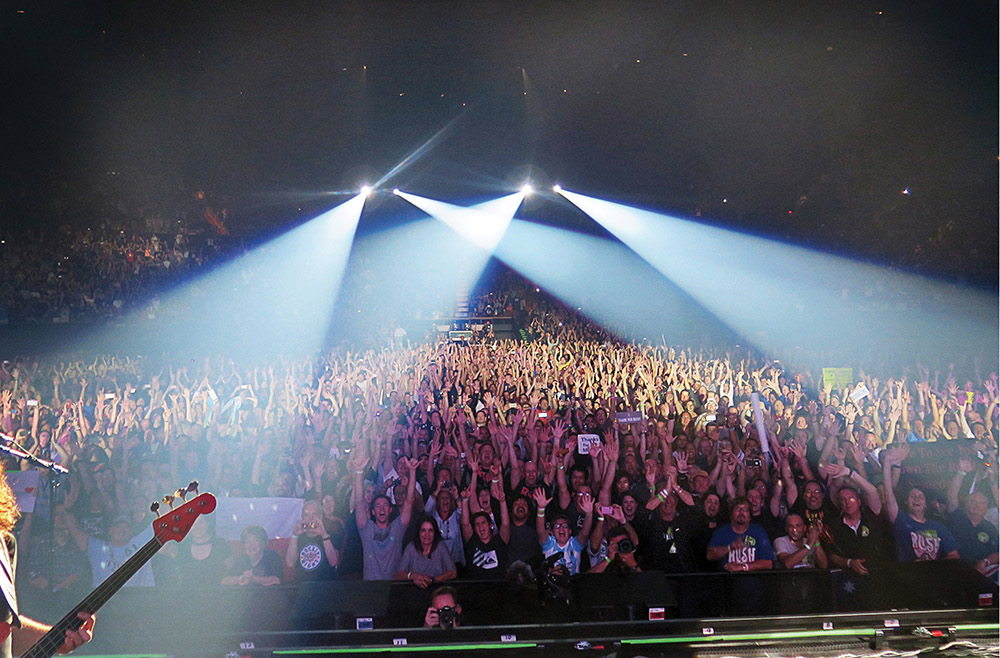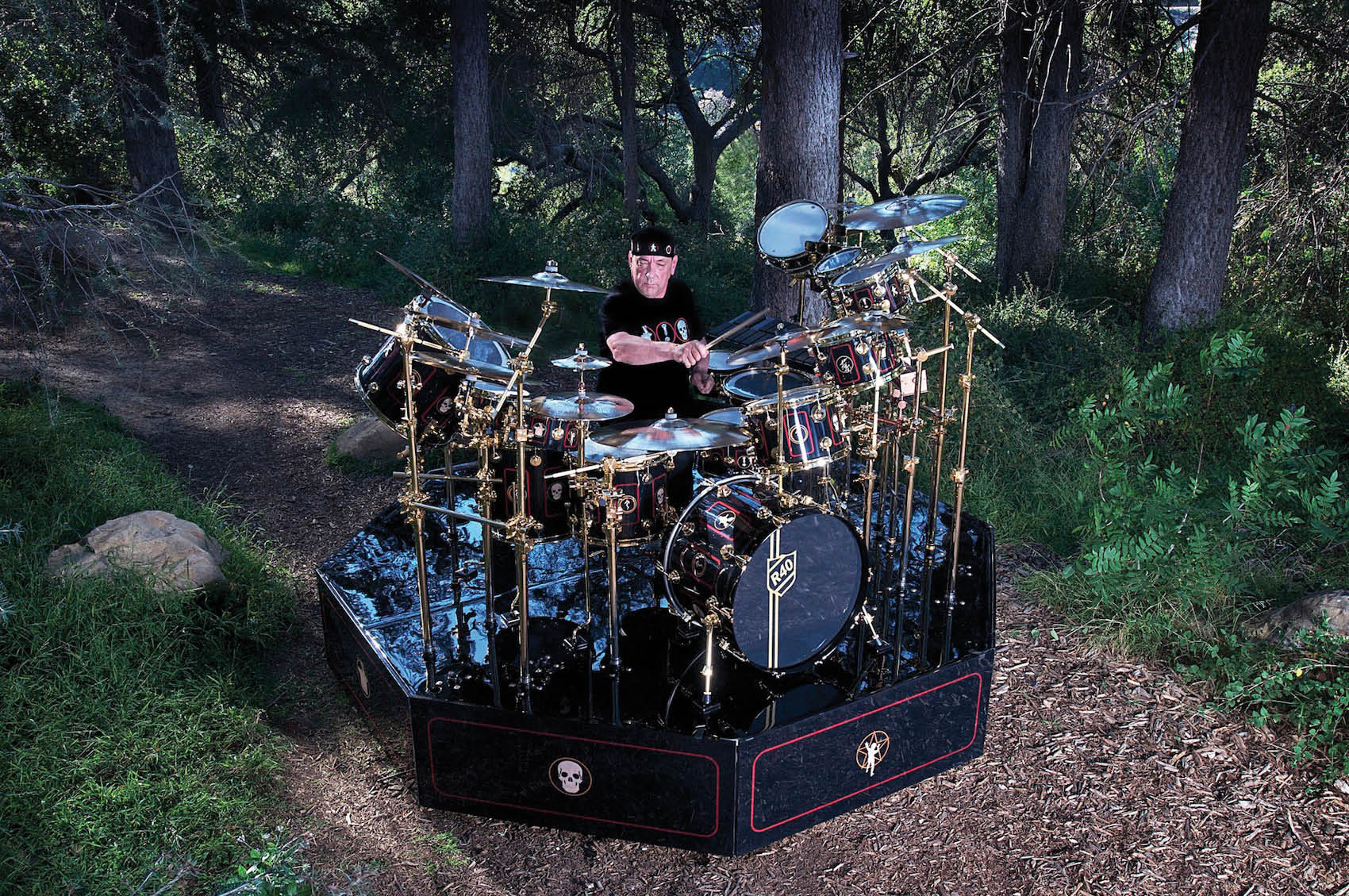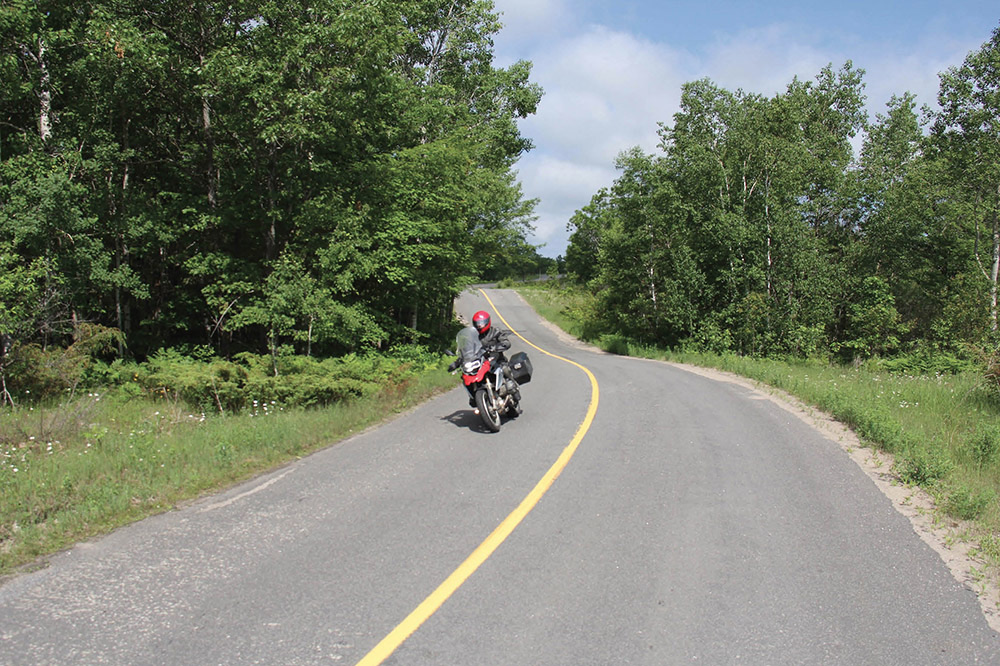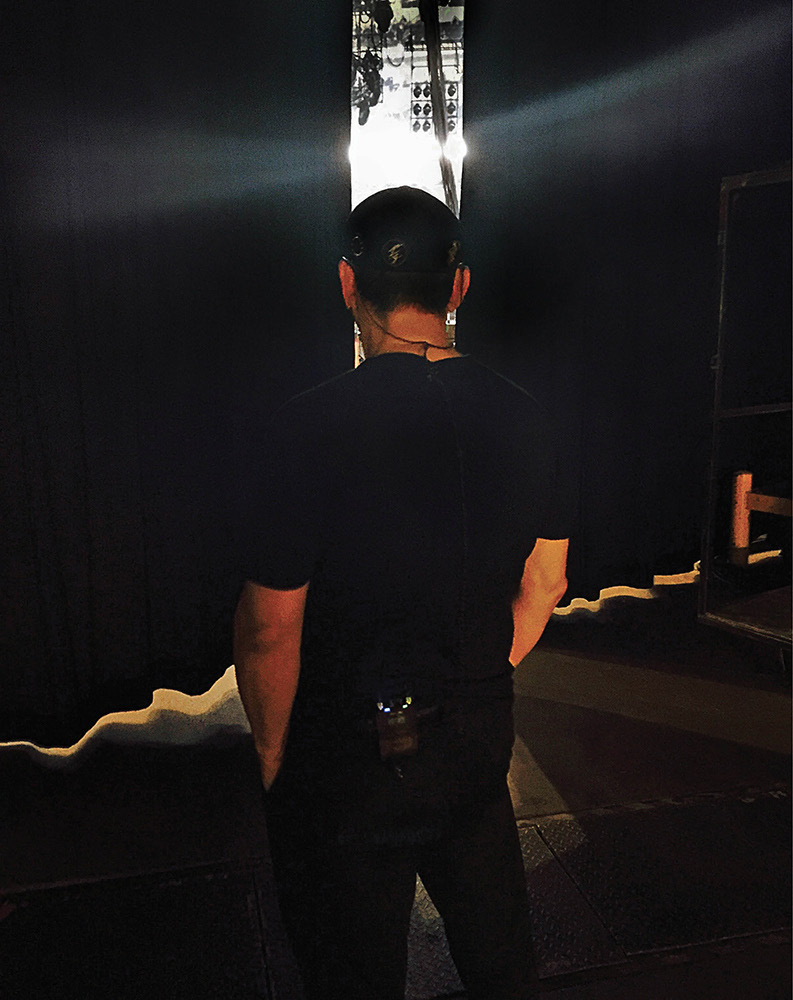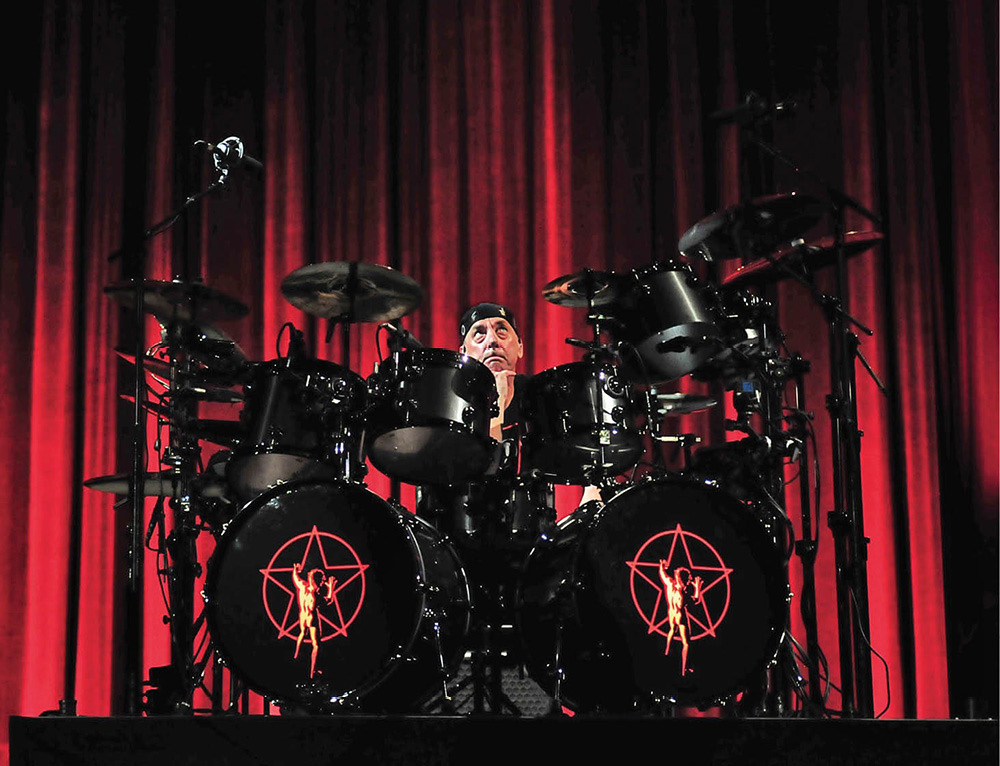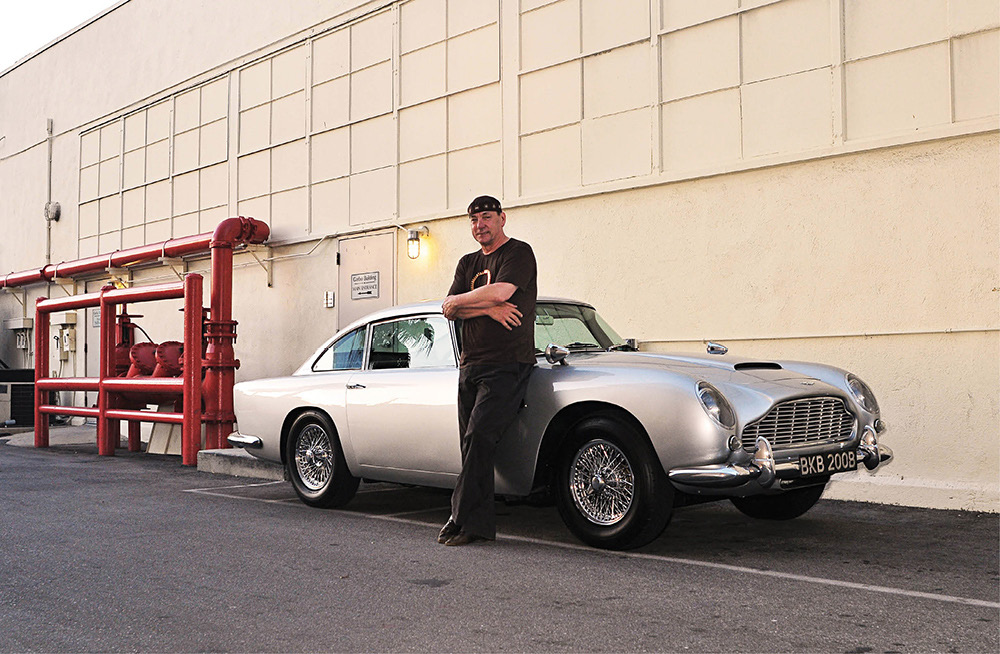The truth is of course that there is no journey.
We are arriving and departing all at the same time.
You gotta be true to your sixteen-year-old self.
Begin as you mean to go on is an old English expression that comments amusingly on this photograph. I am poised to go onstage to start the second set of a show on the Rush fortieth anniversary tour, R40, in the summer of 2015. The glowing lights at my waist are the radio pack that drives my in-ear monitors, which will fill my head with musical information and consume my interior world for the next ninety minutes or so. The blazing lights ahead of me are an arena filled with something like ten thousand people. The heat and light of their joyous excitement is an utter contrast to my cold fire of determination and willas it should be. It is my job to reward their anticipationto be all they expect and more.
Beginning as I would go on, my energy is tightly coiled in anticipation of that challenge before me. Even the first song in that second set, Tom Sawyer, remained a mental and physical ordeal after thirty-five years and thousands of performances. In the reverse-chronology setlist we followed for that tour, each song led back in time, album to album, year to year. Thus I would have to replicate drum parts conceived and executed when I was a childbarely into my twenties. As a harsh-but-fair critic (like myself) might describe how I played the drums back then: More energy than skill; more ideas than technique; more influences than originality; more enthusiasm than accuracy. Since then, with the benefit of many years of practice, dedication, and the guidance of three phenomenal teachersDon George, Freddie Gruber, and Peter ErskineI have balanced those scales a little, at least.
And at almost sixty-three years of age, I was glad I could still do all thatbring the energy and enthusiasm of my twenties to the somewhat improved technique and accuracy of maturity. But... it was a battlea battle against time, in more than one sense.
Bubba Ponders
PHOTO BY CRAIG M. RENWICK
Another edge to that waiting-offstage mindset was a visceral awareness that so much can go wrong, human and technical, in ones immediate future. And in front of a lot of people. Performers of every kind might define their audience as strangers with expectations. During the uncertain heat of live performance, I fear human errors, and I fear electronic letdowns. As much as ever in my life, I want every show to be good, but can never be sure, or even confident, that it will be. In that pre-show mindset, I almost sympathize with athletes who pray before a game, or Grammy winners who thank the Creator for giving them a trophy. (A friends Jewish grandmother once said, What do you get when you get old? A trophy! She meant atrophy.)
So when the houselights go down and I dash through that curtain and up the stairs to the stage, I am tense with focus and uncertaintythough equally focused on not displaying tension or uncertainty.
People sometimes say things like, You look so relaxed when youre playing the drumsso in command. I can only laugh and say, Well, I sure wish it felt that way!
Begin as you mean to go on can also refer to my intention to take a cue from the R40 tours reverse-chronology setlist, and open this story with the final show. If I am going to try to tell something about a forty-one-year relationship with Alex and Geddy, and a separate relationship with the music we have made together over those decades, it will be necessary to do some leaping about in time. So why not start at the Los Angeles Forum on August 1, 2015, the final show of the R40 tour...
We had played in that building many times (twenty-four, according to a plaque on the wall thereso now twenty-five), but the last time had been two nights on the Test for Echo tour, in late 1996. After that the buildings ownership had fluctuated for a while: it was one of the first to bear a corporate name (such shall be nameless herefight the power, fight the branding), then was owned by a church for several years. For complicated and tragic reasons, we did not return to perform again in Los Angeles until 2002, and that time we tried playing at the new mega-arena, named after a chain of business-supply stores. We didnt like that cavernous space, but later enjoyed playing the Hollywood Bowl and Universal Amphitheater (now demolished for a Harry Potterthemed ride at the adjacent amusement park) a few times, and last tour at the Finnish Telecommunications Company Theater downtown.
Before the Time Machine tour in 2010 we had planned to do our production rehearsals and first show at the Forum, but there were worrisome rumors of imminent bankruptcyand the possibility of our equipment being impounded inside. So we set up our production and rehearsed in a film studio soundstage instead, the old Paramount Studios (now Sony) in Culver City.
On the next page we see double-nought spy Bubba (my longtime nickname among many friends, first applied by Andrew MacNaughtan, our late photographer, assistant, and friend, who also introduced me to my wife, Carrie, in 1999) and my Aston Martin DB5 in front of the Garbo Building. (Greta Garbo is mentioned in one of the Bond books, maybe From Russia, With Love, when the face of one of the Bond girls is compared to Garbos.)
The Los Angeles Forum was developed by a Canadian entrepreneur, Jack Kent Cooke, who was born in Hamilton, Ontario, almost exactly forty years before I first drew breath in that same town. (The nearest hospital to our family dairy farm near Hagersville.) The Forum was built in Canadas centennial year, 1967, the same year the old Philadelphia Spectrum went uptwo buildings that always felt alike to me in our early days. There was something about those two venuesI dont think we ever had a bad show in them. They were small enough (considered as arenas) to sound good when they were full of people; the audiences were energetic and enthusiastic, and we always seemed to play well.

